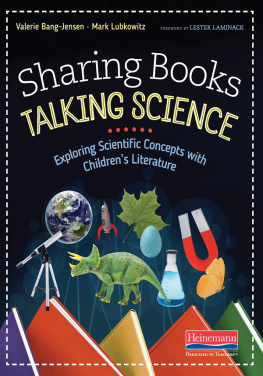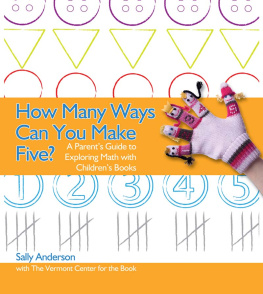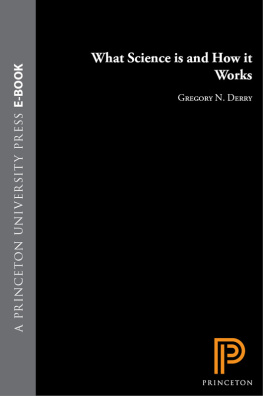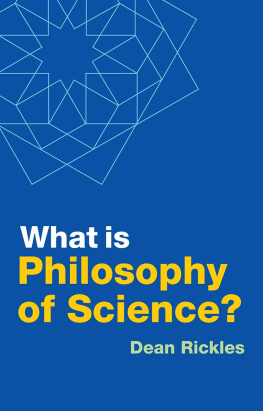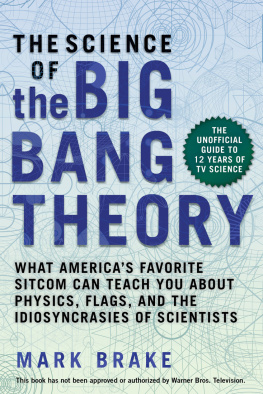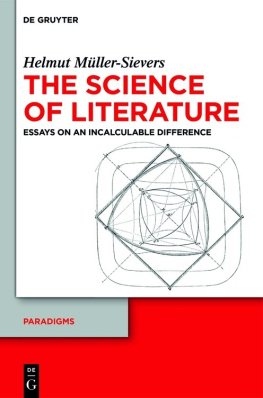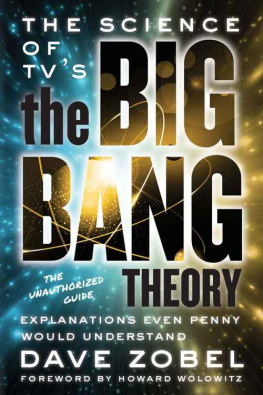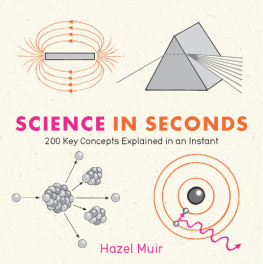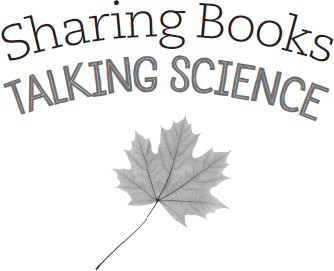Valerie Bang-Jensen - Sharing Books, Talking Science: Exploring Scientific Concepts with Childrens Literature
Here you can read online Valerie Bang-Jensen - Sharing Books, Talking Science: Exploring Scientific Concepts with Childrens Literature full text of the book (entire story) in english for free. Download pdf and epub, get meaning, cover and reviews about this ebook. year: 2017, publisher: Heinemann, genre: Children. Description of the work, (preface) as well as reviews are available. Best literature library LitArk.com created for fans of good reading and offers a wide selection of genres:
Romance novel
Science fiction
Adventure
Detective
Science
History
Home and family
Prose
Art
Politics
Computer
Non-fiction
Religion
Business
Children
Humor
Choose a favorite category and find really read worthwhile books. Enjoy immersion in the world of imagination, feel the emotions of the characters or learn something new for yourself, make an fascinating discovery.
- Book:Sharing Books, Talking Science: Exploring Scientific Concepts with Childrens Literature
- Author:
- Publisher:Heinemann
- Genre:
- Year:2017
- Rating:4 / 5
- Favourites:Add to favourites
- Your mark:
Sharing Books, Talking Science: Exploring Scientific Concepts with Childrens Literature: summary, description and annotation
We offer to read an annotation, description, summary or preface (depends on what the author of the book "Sharing Books, Talking Science: Exploring Scientific Concepts with Childrens Literature" wrote himself). If you haven't found the necessary information about the book — write in the comments, we will try to find it.
Science is everywhere, in everything we do, see, and read. Books-all books-offer possibilities for talk about science in the illustrations and text once you know how to look for them. Childrens literature is a natural avenue to explore the seven crosscutting concepts described in the Next Generation Science Standards*, and with guidance from Valerie Bang-Jensen and Mark Lubkowitz, you will learn to develop the mindset necessary to think like a scientist, and then help your students think, talk, and read like scientists.
Sharing Books Talking Science is an engaging and user-friendly guide that provides practical, real world understandings of complex scientific concepts using childrens literature. By demonstrating how to work in a very familiar and comfortable teaching context-read aloud-to address what may be less familiar and comfortable content-scientific concepts-Valerie and Mark empower teachers to use just about any book in their classroom to help deepen students understanding of the world.
Valerie and Mark supply you with everything you need to know to get to the heart of each concept, including a primer, questions and strategies to spot a concept, and ways to prompt students to see and talk about it. Each chapter offers a list of suggested titles (many of which you probably already have) to help you get started right away, as well as topic spotlight sections that help you connect the concepts to familiar topics such as eating, seasons, bridges, size, and water. With Sharing Books Talking Science, you will have the tools and confidence to explore scientific concepts with your students. Learn how to talk science with any book so that you can infuse your curriculum with scientific thinking...even when you arent teaching science.
*Next Generation Science Standards is a registered trademark of Achieve. Neither Achieve nor the lead states and partners that developed the Next Generation Science Standards were involved in the production of this product, and do not endorse it.
Valerie Bang-Jensen: author's other books
Who wrote Sharing Books, Talking Science: Exploring Scientific Concepts with Childrens Literature? Find out the surname, the name of the author of the book and a list of all author's works by series.

